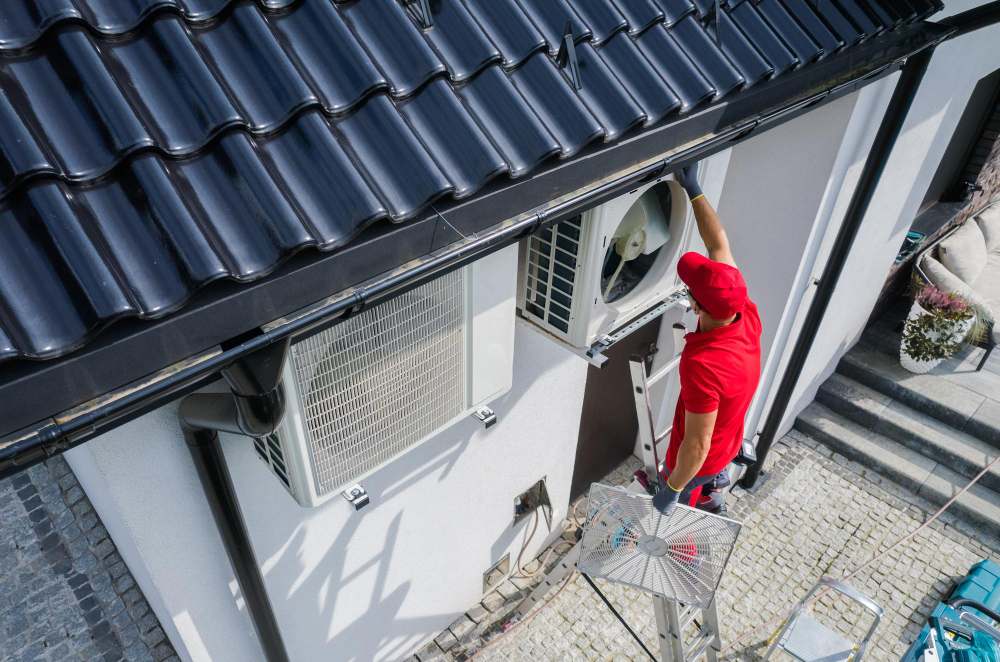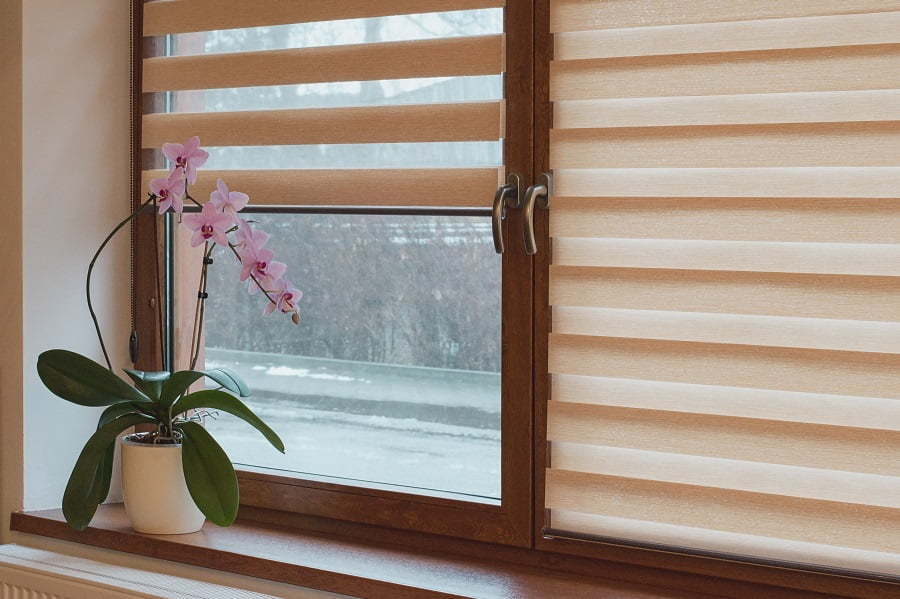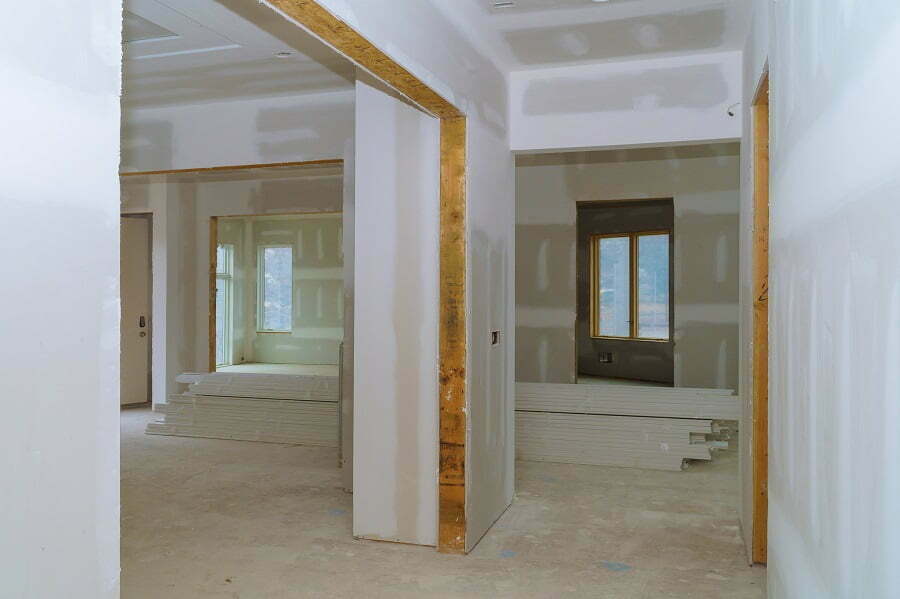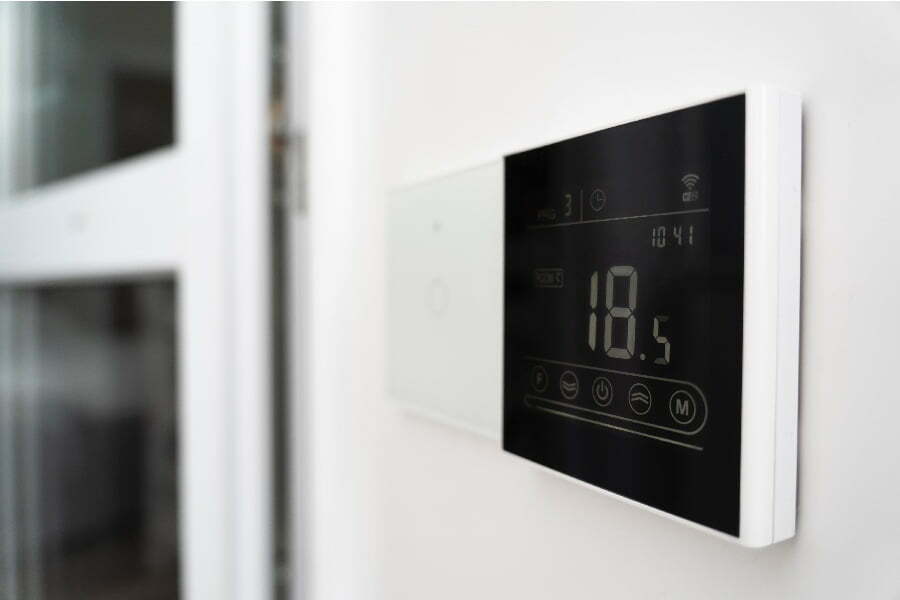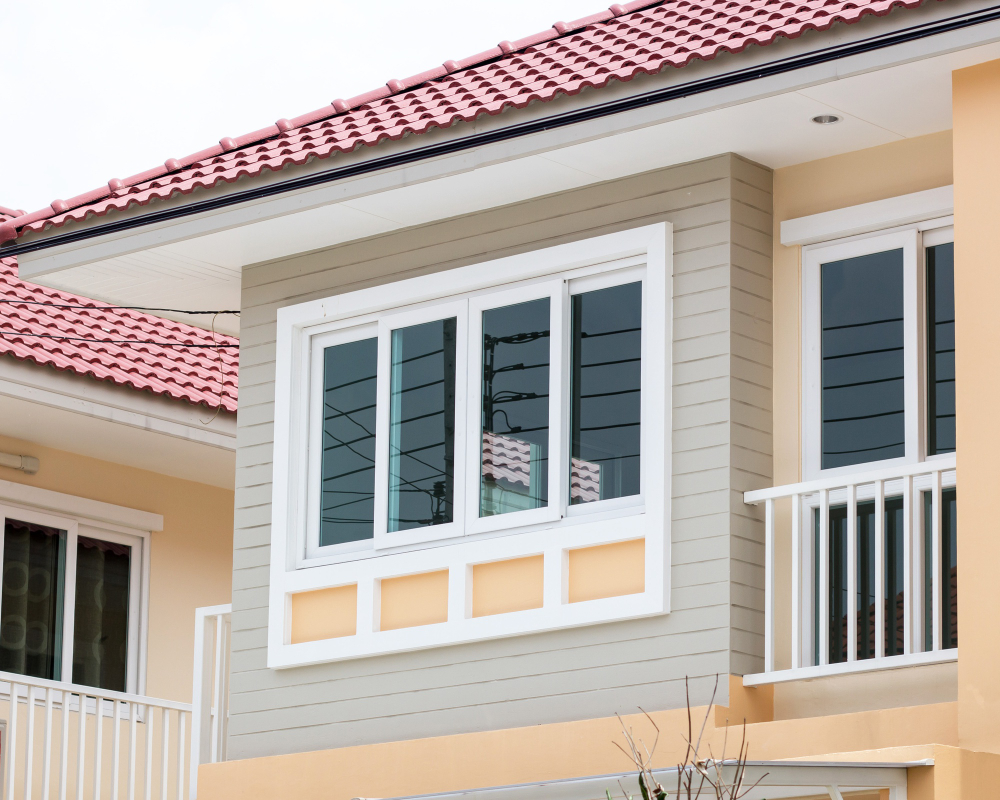Last updated on
Following these five tips will help you keep your home at a comfortable temperature without cranking the AC constantly, saving you money and reducing your environmental impact.
Running your AC all summer is a great way to beat the heat but also a great way to get hit with an enormous electric bill. Luckily, we’re here to help with the five best ways to make your home naturally cooler so you can reduce your AC costs this summer.
Close Shades or Blinds
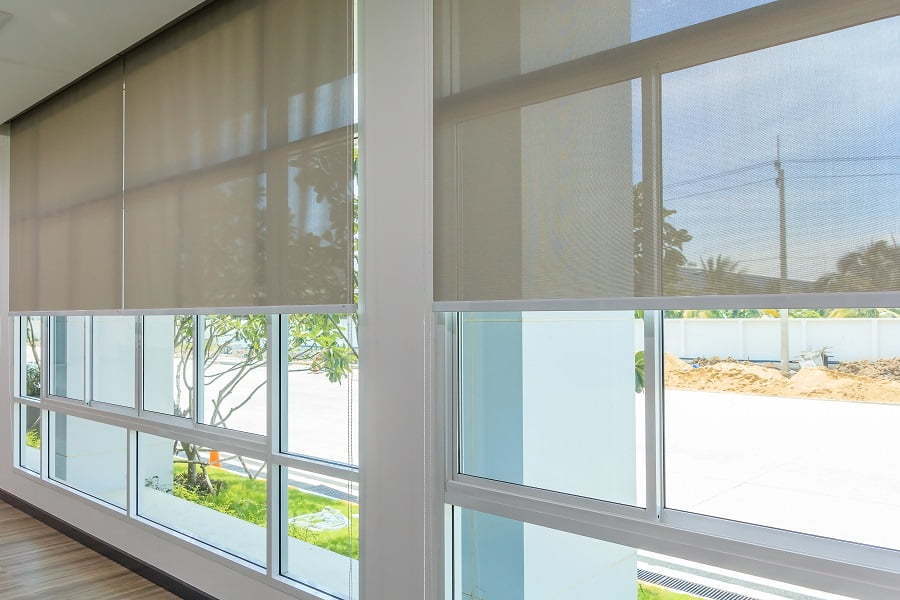
The easiest way to lighten the load for your AC unit is to close as many shades as you can during the day. The sun beating through your windows heats your home up quickly, making your HVAC system work harder and increasing your energy bill. Unless you need the light, consider closing any blinds or curtains on windows that face the sun throughout the day. Closing the shades on the windows that get the most direct sunlight can significantly lower your monthly AC costs.
Plant Trees Around Your Home
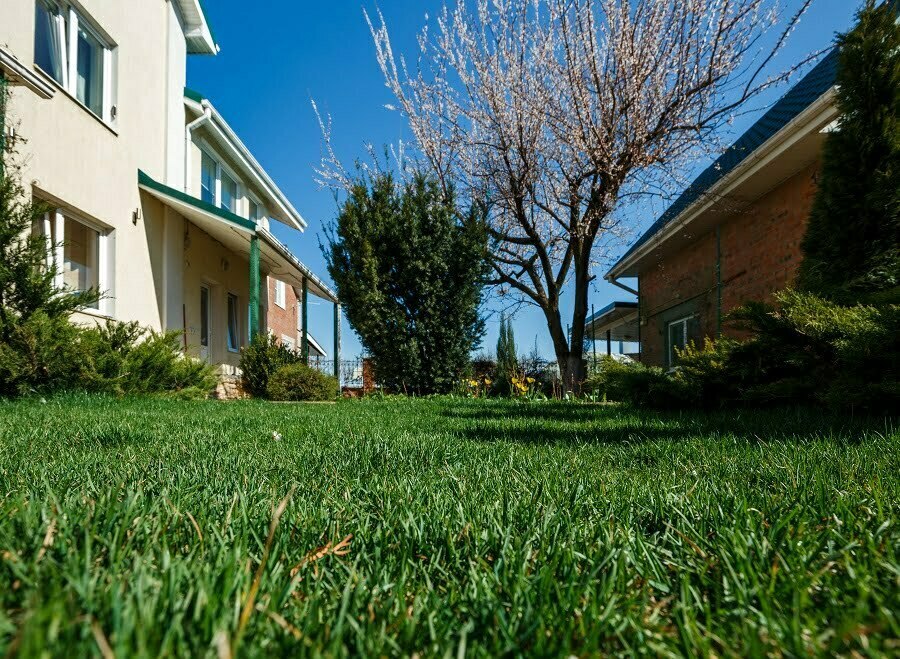
If you prefer natural light and don’t want to keep your blinds closed all summer, planting trees and tall bushes around your home is a great natural way to stay cool during the hottest months. Trees provide tons of shade but are expensive to plant and take a long time to grow. Buying full-grown trees is an option, but it won’t be cheap.
The good news is that strategically placed hedges and bushes can have almost as much cooling effect for far less money. Try to position them where they cast their shadows on as much of your house as possible, targeting windows wherever possible.
Install a Smart Thermostat

Smart thermostats are all the rage these days, and deservedly so. Many people think that smart thermostats are gimmicks for people who don’t want to get off the couch to adjust the thermostat, but they can actually save you money by intelligently cooling (or heating) your home. Smart thermostats learn your temperature preferences and efficiently turn your AC on and off to keep your home at your preferred temperature while using as little electricity as possible.
They also learn to anticipate your daily schedule, saving you even more money by avoiding abrupt temperature changes. Most people can expect to save about 15% on yearly AC costs.
Schedule an AC System Tune Up
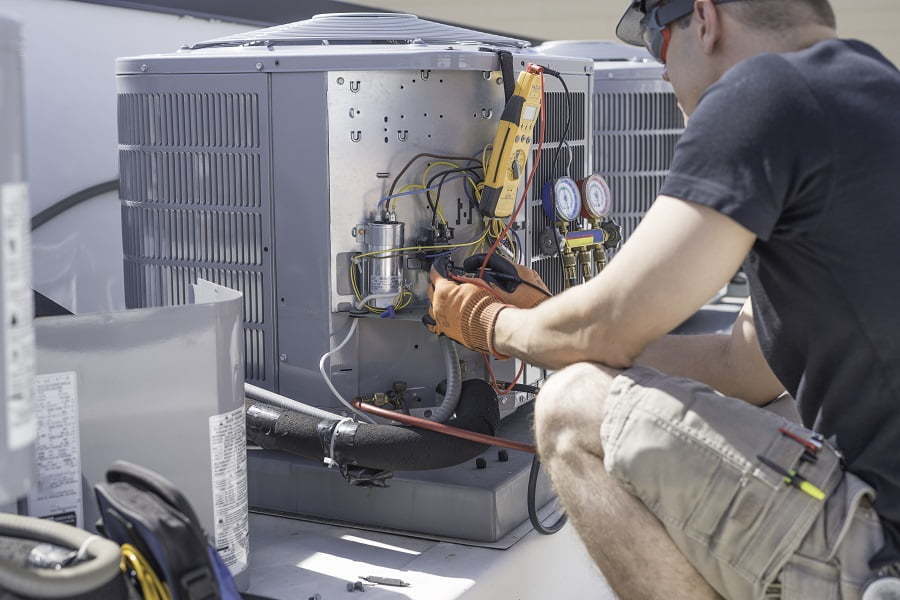
Many homeowners don’t realize that AC units need regular maintenance. If you’ve never had your HVAC system tuned, it probably isn’t operating as efficiently as it used to. Luckily, most companies cover regular maintenance under warranty for several years after the purchase date. You may also have lifetime coverage for tune-ups if you have a home warranty for your HVAC system.
An AC tune-up usually includes the following services:
- Cleaning the condenser coils
- Checking the coolant level
- Thermostat calibration
- Duct inspection (to check for leaks)
- Electrical inspection
- Motor evaluation
An AC tune-up is a great time to install a smart thermostat since an HVAC technician will already be digging around in your system. Make sure to mention it when you schedule the appointment so the technician can bring any extra equipment they need to install a new thermostat.
Replace Insulation, Windows, and Doors
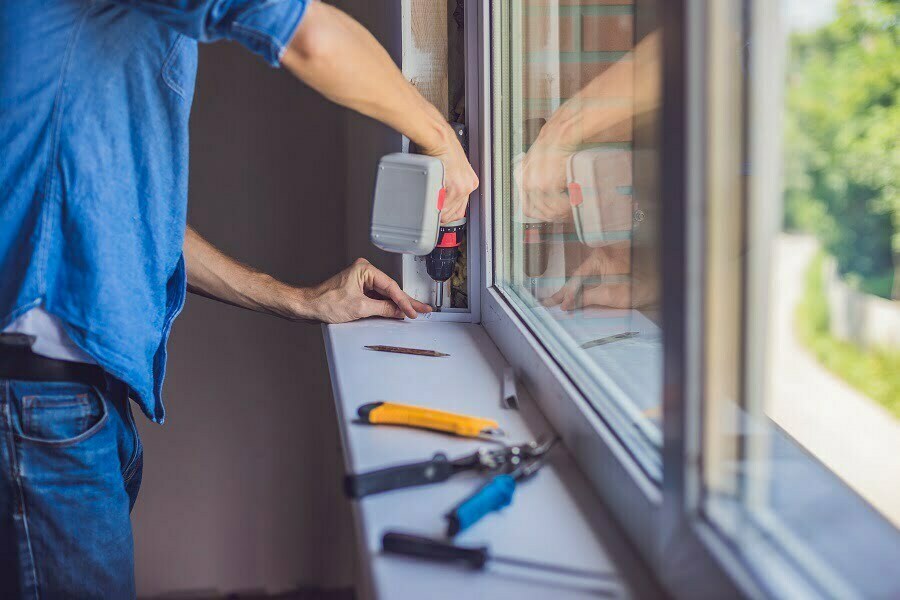
If your home was built more than 15–20 years ago, it might be time to replace the insulation. Insulation wears out over 15–30 years, and old insulation is significantly worse at keeping your home cool during the summer and warm during the winter.
It’s hard to tell if poor insulation is driving your AC costs up without inspecting the insulation directly. However, if your entire house feels drafty during the winter or if you notice uneven temperatures between rooms, it might be time to replace your insulation.
Window and door seals also become less effective with time as your house settles, and the pliable rubber components become brittle with age. You can check your doors and windows by feeling for drafts with your hand. This is generally easier to do during the winter but still possible to do in warmer weather. Pay particular attention to any doors or windows that get a lot of direct sunlight since sunlight wears down seals and intense heat can warp door and window frames.
Related reading:
Table of Contents
